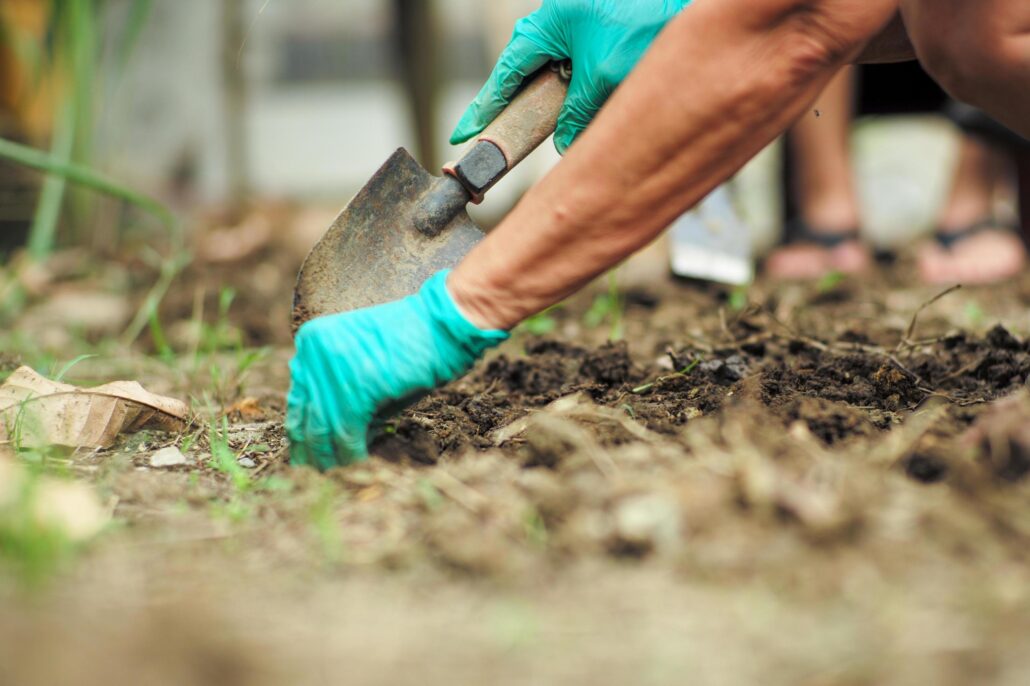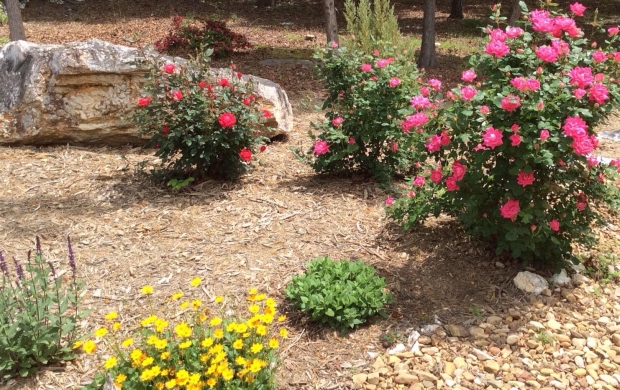The exterior of your home says a lot about you. Planting flowers, landscaping and laying down mulch is a common choice to increase curb appeal and take pride in your home.
Landscaping with mulch provides many benefits beyond just curb appeal, like reducing weeds and increasing soil health. However, it’s not all roses as mulch landscaping can present potential hazards like harming the foundation of your home and/or welcoming unwanted termites.
In this article, we’ll also look at the pros and cons of mulching in your yard as it pertains to the structural integrity of your home. We will also share how a professional home inspection can help ensure the mulch you choose is safe for landscaping around your home so you can relax and enjoy your beautifully landscaped yard.
Summary
- What is Mulch
- Benefits of Mulch for Your Home’s Foundation
- Potential Hazards of Mulching
- How to Safely Landscape with Mulch
- Maintenance Requirements for Mulching
- Home Inspection Before Mulching
1. What is Mulch?
Mulch is an organic material used to cover soil surfaces used often in landscaping a garden or yard. It can be made from a variety of materials, including bark, wood chips, composted manure or leaves.
2. Benefits of Mulch for Your Home’s Foundation
In addition to helping plants grow, improving soil health and preventing weeds from taking over, mulch can actually play a pivotal role in protecting the foundation of your home. Here’s how:
- Moisture Retention: Mulch has the ability to retain moisture, which is beneficial for the surrounding plants and soil around your home’s foundation. This helps to maintain the right level of moisture in the soil, preventing it from drying out and leading to foundation problems.
- Drainage Benefits: In addition to retaining moisture, mulch can help draw excess water away from the foundation of your house, thus preventing water damage.
- Preventing Soil Erosion: Mulch also works as an erosion deterrent, which is essential for maintaining the stability of your foundation.
- Aesthetic Appeal: While this may not directly protect your foundation, mulch does add to the visual appeal of your landscaping, which indirectly contributes to overall property value.
3. Potential Hazards of Mulching
While mulching can certainly offer benefits such as moisture retention and aesthetic appeal to your landscape, it can also pose certain risks to the foundation of your house if not done correctly. Here are some potential home hazards to look out for:
- Attracts Pests: One of the major concerns with mulching near your home’s foundation is that it can attract pests, particularly termites. Termites are known for their destructive nature, causing damage to landscape plants and the wooden structures of your home. A termite inspection before landscaping can ensure your home doesn’t already have an existing termite or pest problem to be aware of.
- Promotes Fungal Growth: Mulch creates a damp, dark, and nutrient-rich environment that can promote the growth of fungi. If this mulch is placed near your home, it can encourage fungal growth in and around your house, potentially leading to structural damage.
- Causes Moisture Problems: Although mulch is beneficial for retaining moisture in your garden, it can contribute to basement dampness if placed near your house. Excessive moisture can lead to a host of problems, including mold growth and damage to the foundation.
- Fire Hazard: In some cases, wood mulch can pose a fire risk. If not properly managed and kept away from your home, a small spark could potentially ignite the mulch and cause a fire.
4. How to Safely Landscape with Mulch
To mitigate these risks, it’s important to install your mulch correctly. You should leave a gap of about 1 foot between the mulch and your foundation and ensure that door and window frames do not come into contact with it.
Similarly, there should be a distance of 4 to 6 inches between the mulch and the line where the home’s foundation ends and the flooring begins. This includes maintaining a safe distance between the mulch and your home’s foundation, regularly checking for signs of pests and decay, and using termite-resistant mulch materials.
5. Maintenance Requirements for Mulching
One of the most important aspects of mulch maintenance is regular replenishment. Over time, mulch tends to break down, reducing its effectiveness in weed control and moisture preservation. Typically, you should add new mulch at least once a year, or more frequently if it appears thin or worn out.
Additionally, it’s crucial to keep mulch away from the base of plants and tree trunks to prevent rot and pest infestation. Raking or turning over your mulch periodically can help prevent the formation of a hard, water-repellent surface and maintain its loose, airy structure. It’s also important to watch for signs of mold, fungus, or pests, which might indicate that the mulch is too wet or that it needs to be replaced.
6. Home Inspection Before Mulching
Before you begin the process of mulching your landscape, conducting a thorough home inspection is crucial. This step enables you to evaluate the existing conditions of your landscape and identify any potential issues that could be exacerbated by mulching. For example, if there’s a termite problem already present, certain types of wood mulch could potentially make it worse.
Additionally, improper placement of mulch, particularly against the foundation of the house, could lead to moisture-related issues. An inspection can also help determine the health and suitability of your plants for mulching. Some plants might be sensitive to certain types of mulch or may require specific mulching techniques to thrive.
Investing time in a comprehensive home inspection, before you start mulching, can save you from potential problems down the line and ensure the overall health and beauty of your home.
Schedule Your Home Inspection Today
While mulch landscaping offers numerous benefits, it’s essential to approach this practice with a comprehensive understanding of potential hazards and maintenance requirements.
A thorough home and landscape inspection can help identify any existing issues that could be worsened by mulching, such as termite problems or moisture-related complications. So scheduling a home inspection is a great place to start your next landscape project.
Towne & Country Building Inspection helps homeowners in the greater Milwaukee area make sure their home is safe and sound. Be sure to schedule a Milwaukee home inspection before your next landscape mulching project. Call us today, we are here to help.
 By Dale Granbois, co-owner of Zablocki Waterproofing
By Dale Granbois, co-owner of Zablocki Waterproofing
Dale Granbois is the proud co-owner of Zablocki Waterproofing, the premier basement waterproofing and foundation repair service provider in Milwaukee. Our team of experienced professionals offer a variety of services from complete basement waterproofing solutions to structural foundation repairs -all designed to keep your home or business safe and dry. Let us save you from expensive headaches caused by water damage and give you peace of mind with a safe and secure property. Contact us today for more information!







